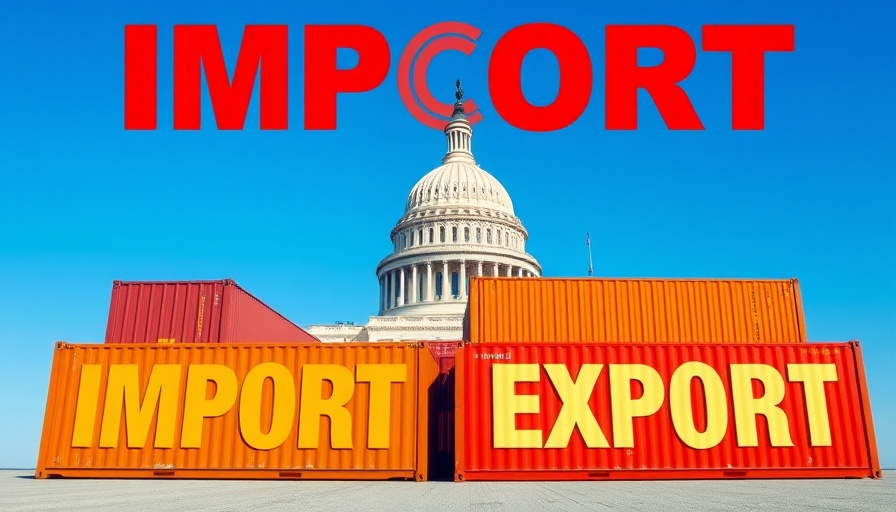
The Impending Impact of U.S. Tariffs on Manufacturing
As the calendar flips to a new year, U.S. manufacturing is hit with the heavy news of impending tariff changes slated for February 1. For many manufacturers, this could mean reevaluating their entire operational strategies. Complex supply chains, particularly those reliant on components from Canada, Mexico, and China, are bracing for impact, as these new tariffs could disrupt their business as they know it. A dark cloud looms over the manufacturing sector that pulls together parts from all corners of the globe, particularly in high-tech industries like automotive and aerospace.
The High Stakes for Complex Supply Chains
Manufacturers that rely on intricate global supply chains face unprecedented challenges due to these tariffs. Not only may these tariffs increase production costs for companies, but they could also hinder innovation and increase consumer prices. For example, the aerospace industry—with its reliance on specialized components—could see manufacturers facing years of delay in developing substitutes for now-expensive imported parts. This scenario can stifle economic growth and diminish the U.S. manufacturers' competitiveness in a global marketplace.
Real-World Consequences: Aerospace and Automotive
In the aerospace sector, the stakes are high. Many aerospace firms leverage foreign suppliers for their component needs, hoping to benefit from cost-effectiveness and advanced technology. However, as tariffs elevate component costs—especially those protected by patents—companies must then invest in developing new technologies and local manufacturing to stay viable in the market. This process can not only be time-consuming but can also require extensive recertification efforts, costing companies dearly.
The automotive world, particularly in Detroit, faces a similar predicament. Here, supply chains bounce back and forth across borders to maintain operational efficiency. Such a reliance could lead to dire outcomes; tariffs could cripple operations, squeezing manufacturers to raise consumer prices, ultimately affecting car buyers directly. In the past, similar tariffs have proved disastrous, inflating costs for essential items like electronics and steel, echoing downward to the average American consumer.
Strategizing in the Face of Uncertainty
Despite these daunting challenges, manufacturers have the opportunity to take proactive steps now to mitigate the impact of tariffs. Analyses like Total Landed Cost (TLC) can be invaluable for understanding the complete expenses involved in sourcing components. Conducting thorough make-buy evaluations is crucial for discerning whether sourcing locally could offset tariff costs or if sticking with existing suppliers is more beneficial under the circumstances.
Moreover, strategic planning cannot be undervalued. By reassessing their supply relationships and employing flexible manufacturing strategies, companies can equip themselves to navigate the trials posed by these tariffs, ensuring they stabilize their businesses in uncertain times.
Preparation is Key for Resilience
While uncertainty surrounds the implications of the new tariffs, manufacturers focusing on preparedness and agility in their operations will be better positioned to weather the storm. Learning from historical tariff repercussions, embracing flexible supply chain strategies, and embedding these practices into daily operations could play a pivotal role in maintaining competitiveness.
The future of U.S. manufacturing hinges on how well industries adapt to expected and unexpected challenges. Embracing change, fostering innovation, and preparing for shifts in the global economy will be key to survival in this evolving landscape.
 Add Row
Add Row  Add
Add 




Write A Comment